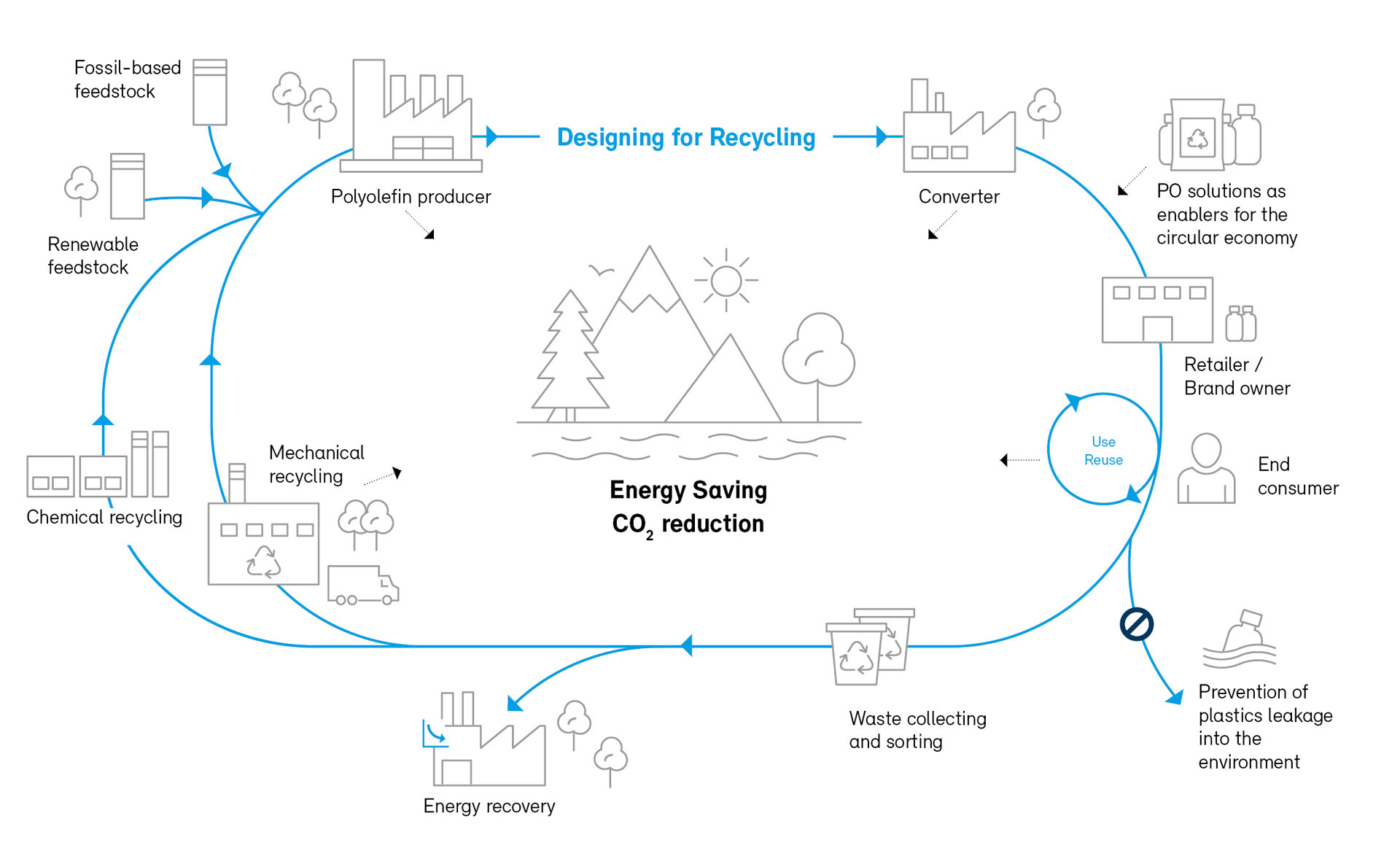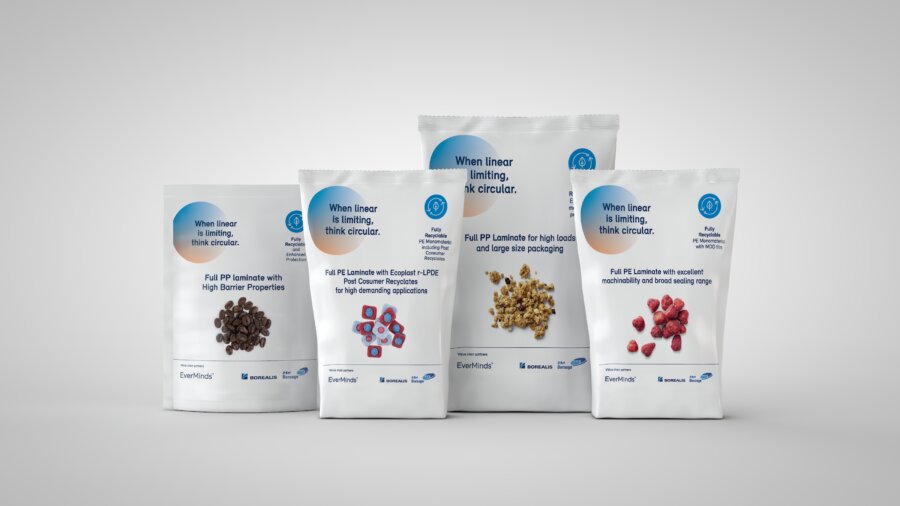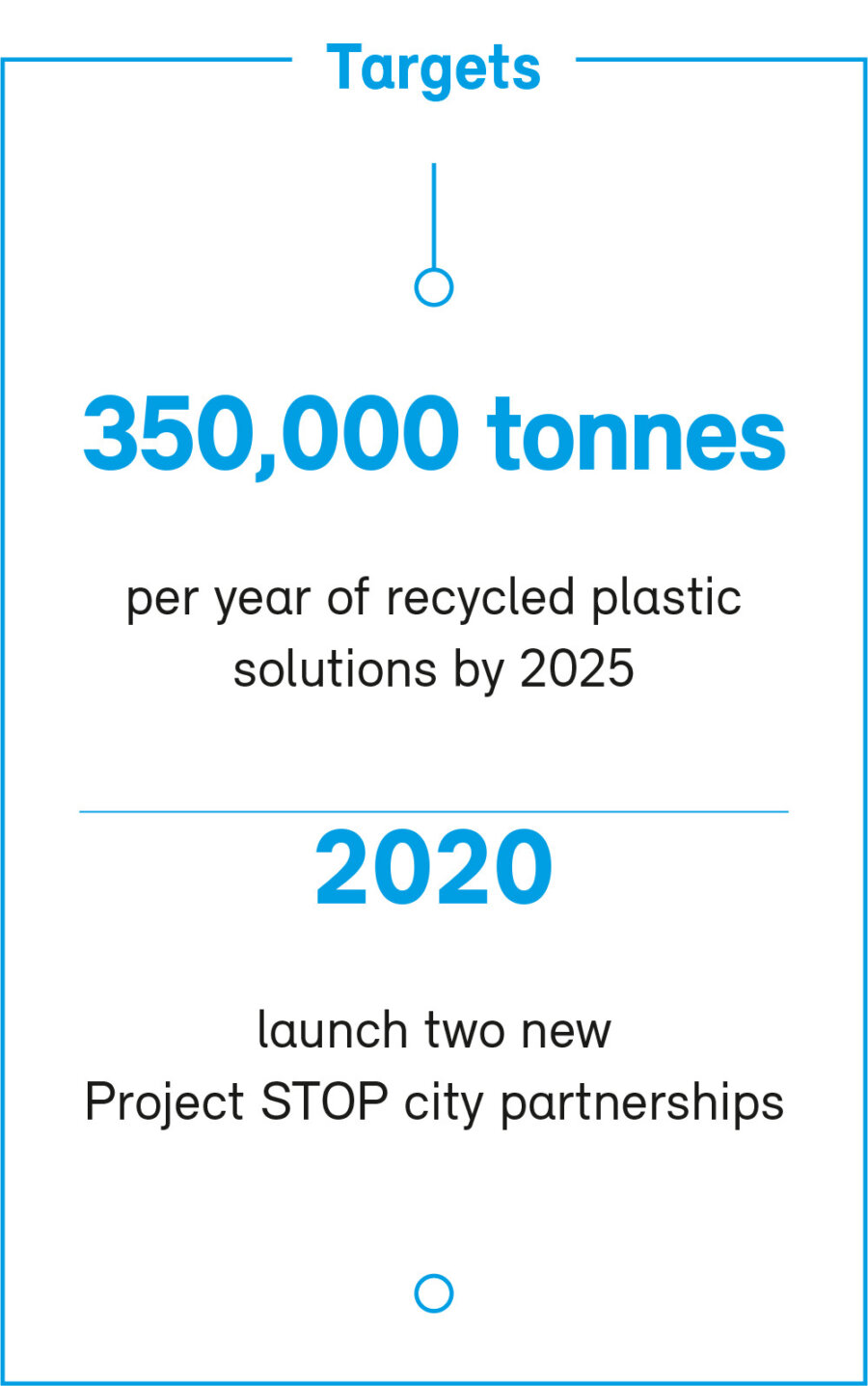Borealis' vision of a circular economy

The unique properties of plastics have been a key factor in their global success. Their malleability and versatility enable the production of products which make daily life safer, more efficient, sustainable and convenient. These properties mean that as the global population grows, demand for plastics is increasing.
Within the linear economy model, plastic products are made, used and disposed of. Continuing with this model will lead to more plastic waste and environmental pollution, while putting pressure on the planet’s limited resources. The solution is to further transition to a circular economy, where plastics are reused, recycled and made from renewable feedstock. A circular economy decouples economic growth from resource constraints, while reducing the leakage of waste into the environment, and in particular the oceans, and to landfill. The circular economy will also reduce global warming: greenhouse gas emissions can, for example, be lowered by 30% by substituting recyclates for virgin feedstock.
Borealis’ circular economy goals are to:
During 2019, Borealis:
The potential for polyolefins to help mitigate global warming is widely known. However, in recent decades the entire plastics value chain, from producers to governmental bodies, has paid too little attention to the after-life of plastic materials, with the inefficient waste management of plastics leading amongst others things to unacceptable marine littering. The entire plastics industry therefore needs to transition towards a more circular model to future-proof the industry’s existence.
The creation of a truly circular economy has wider implications. It will provide economic benefits to society by reducing the significant financial burden of ineffective waste management systems and pollution management, and will create new business opportunities and employment at various stages of the value chain. A circular economy will also result in better living and working conditions and in general in a cleaner environment.
A circular economy, in which waste and pollution do not exist by design, also offers much promise for achieving numerous UN Sustainable Development Goals, including those relating to economic growth, sustainable consumption and production, climate change and the oceans.

Borealis’ circular economy strategy is based on three pillars:
Designing for Recyclability (DfR) and Alternative Solutions
Borealis is committed to designing for recyclability in the solutions it offers. The Group therefore developed ten Codes of Conduct for polyolefin packaging designers, based on Borealis’ extensive know-how about polyethylene and polypropylene and expertise from the Group’s recycling companies. The Codes explain how to maximise the quality and quantity of packaging materials that can be recycled, while supporting the achievement of recycling targets and contributing to a more sustainable transition to a circular economy.
In addition, Borealis innovates and collaborates with value chain partners to offer alternatives to materials that are not recyclable today. Examples include fully recyclable monomaterials for flexible packaging.
Borealis is also exploring fully integrated closed-loop and re-use business models on certain products and supply chains, which replace single use plastics. An example is a re-usable beverage cup, made from polypropylene.
Advancing the Circular Economy through EverMinds™
Borealis wants to bring the value chain together to advance the circular economy. In 2018, the Group launched EverMinds™ a platform dedicated to raising the visibility of plastics circularity and promoting a more circular mind-set within the industry. It streamlines Borealis' activities, to boost their impact and engender familiarity with the circular economy. EverMinds also aims to spark interaction between Borealis an its stakeholders.
All the Group’s wide-ranging circular economy activities have been gathered under the symbolic roof of EverMinds. At the Plastic Recycling Show Europe in Amsterdam, Borealis exhibited for the first time under the EverMinds umbrella. Borealis also leveraged EverMinds at the industry’s biggest trade fair, K Fair, in October 2019.



